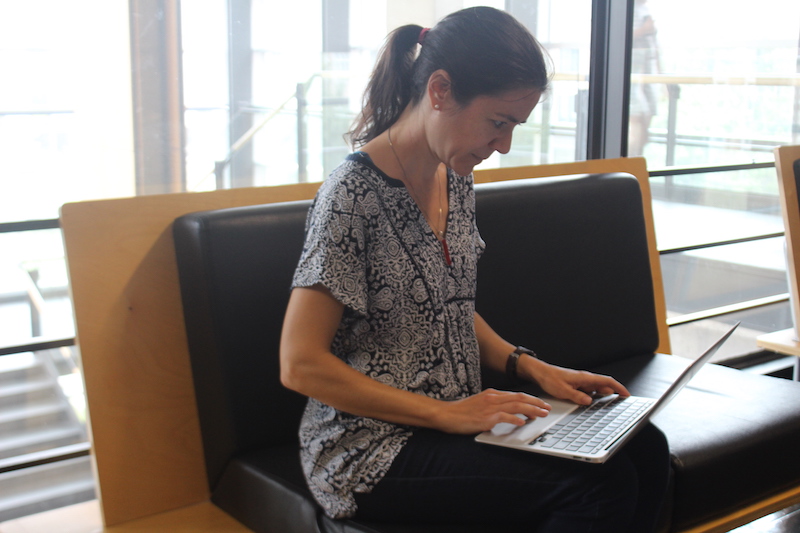Teacher Catherine Calogeropoulos invites students to learn basic science and fundamental cooking skills
Catherine Calogeropoulos, a part-time professor in Concordia’s biology department, has full confidence in her newly online-adaptedclass, “BIOL 203 – Fundamental Nutrition.”
After four years of teaching the subject in the classroom, Calogeropoulos wanted to perfect it to her taste for the online section. “I thought it would be a great opportunity to mix my knowledge of biology and food together,” she said.
The class is designed to use science to teach the basics of daily nutrition. Calogeropoulos said she had to find a way to get non-science students to understand complicated scientific concepts, to pique their interest in the course.
The first time she taught the class, she said the students had to cook for their term project. Their homework consisted of following any recipe they wanted, while noting all of the nutritional facts of the meal, such as the amount of carbs and fats. “When they came back with the results, I realized that a lot of them didn’t know what to do in a kitchen,” said Calogeropoulos.
In a slideshow she presented during her first class, she included a Meryl Streep interview. “During an interview for her movie, Julie and Julia, Streep said her mother’s motto was ‘If it’s not done in 20 minutes, it’s not dinner’,” said Calogeropoulos. “When she was a kid, the actress found herself at her friend’s house where her mother was carving up what she thought were tennis balls, which were in fact were potatoes.”
Calogeropoulos said she realized it would be a good idea to include cookbooks in all of her classes. It would show students basic cooking techniques, such as how to clean garlic, and would teach them how to use basic cooking tools.
“In lecture one, I tell students to go home and clean their kitchens and get, if possible, a few basic tools,” said Calogeropoulos, about the class. “For some students, the science is quite heavy, so I attempt to level the playing field by including cooking assignments, and more recently, reading assignments that discuss some current topics in nutrition,” she continued.
Calgeropoulos’ online version of the course will feature a professional chef showcasing the recipes. Each lesson will have a video segment of the chef preparing a meal to support the lesson of the week. “It will be easier for the students to understand how, for example, lipids work by seeing how mayonnaise is made,” she said.
Calogeropoulos believes that the course is about more than just understanding science and learning how to cook. “It’s about learning vital life skills—cooking is a discipline, and this discipline can be applied in your life,” she said.
The online class, “BIOL 203 – Fundamental Nutrition” will be offered during the winter semester.




